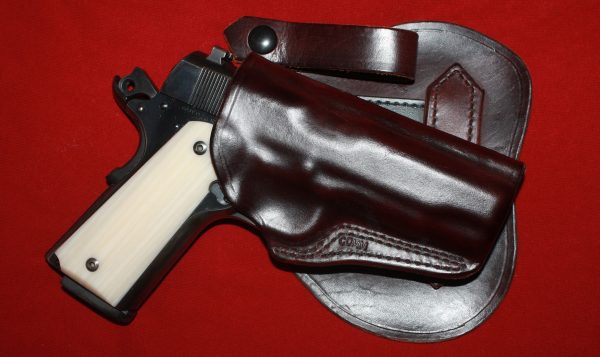
DRGO is setting up a pro-2A physicians referral service for privacy-oriented gun owners. (Dave Workman)
By Dave Workman
Senior Editor
An organization of pro-Second Amendment medical professionals – Doctors for Responsible Gun Ownership – has launched an effort to connect gun owners with physicians who respect the privacy of their patients.
DRGO, a project of the Second Amendment Foundation, was founded more than 20 years ago as a nationwide advocacy and watchdog group of physicians and health care professionals, according to a brief online history.
According to Dr. Arthur Przebinda, MD, there is a growing demand for health care professionals who don’t routinely ask their patients about gun ownership. The group created a free referral service after the 11th U.S. District Court of Appeals struck down key provisions of a Florida statute known as the Firearm Owners’ Privacy Act in a case commonly referred to as “Docs v. Glocks.”
Przebinda, the DRGO project director, asserted in a news release that, “Medicine has an institutional bias against guns. Patients should be able to obtain healthcare services from providers who respect their rights. We are recruiting providers of all kinds. We hope soon to start connecting patients and providers.”
This might be of particular interest to many Washington State residents, where the state Department of Licensing told Liberty Park Press that as of Aug. 31, there were 589,670 active concealed pistol licenses, which roughly translates to about 10 percent of the adult population. And that is in a “blue” state politically, which may be a fiction dominated by Seattle-area voters who reflexively vote Democrat and liberal while much of the rest of the state is purple if not bright red.
Gun control proponents have long considered firearm-related crime as a public health issue. This opened the door for anti-gun doctors to begin offering firearms safety advice to patients. This created a backlash among gun rights activists who argue that physicians should stick to medicine, and leave gun safety to certified firearms instructors.
DRGO considers such medical gun control advocacy with individual patients as a “boundary violation,” calling it an abuse of the doctor-patient relationship.
Providers who respect their patients’ privacy and gun rights can sign up with the referral service here.
Writing in his blog recently, Dr. Przebinda noted, “This issue is a continuing nationwide problem. The case of my 90 year old, bed-ridden mother-in-law who lives in a nursing home in Los Angeles illustrates the extent of the problem: Just recently, she was taken to an off-site specialist consultation. The paperwork my wife had to fill out included questions about the presence of firearms in the home.
“Personally,” he added, “I would prefer that there are firearms in the nursing home where my mother-in-law stays. The patients and their caretakers are vulnerable soft targets. That aside, what in the name of all that is sane does the question about firearms ownership have to do with an evaluation of a feeding tube in a 90 year old, non-ambulatory nursing home resident? That question is absolutely irrelevant to her care and not warranted by her history and clinical picture.”



